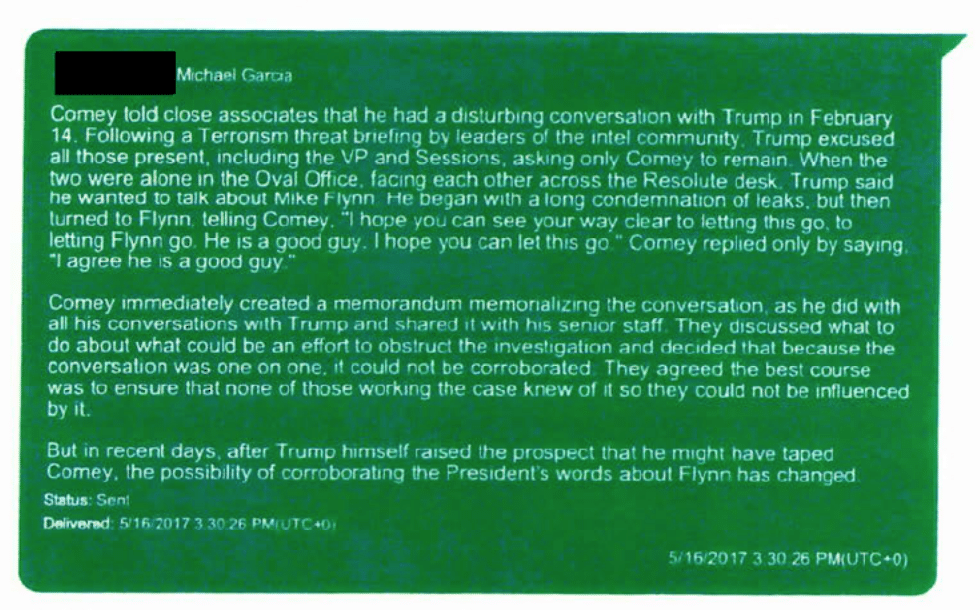
"All right. Thank you. But before you sit down, let me just ask you, do you think that the other pending motions, including the issue of literal truth and ambiguity and the other matters that are yet to be litigated, are so wrapped up in vindictive prosecution that the Court should deal with them all at one time, or do you think that the Court can and should deal with vindictive prosecution separately?"
"I think vindictive prosecution, like our motion based on the appointment of the U.S. attorney, are threshold matters that the Court should resolve as a threshold. Mr. Comey would like to see both of those motions resolved because they both go to the very heart of whether a prosecution in this case is permissible, one by virtue of a challenge to the official who brought it, the other by virtue of whether it complies with the Constitution to bring a prosecution at all."
"Our other motions are very important, and we have a series of them that challenge other aspects of the prosecution. As I'm sure the Court is well aware, there are issues relating to the conduct of the prosecutor in the grand jury. But this one and the appointments issue stand at the threshold. They're the gateway to all further motions, and those should be resolved at the outset of the case, in our view."
The court raised whether pending motions, including literal truth and ambiguity, are so intertwined with vindictive prosecution that they must be handled together or whether vindictive prosecution should be adjudicated separately. Vindictive prosecution and the appointment-of-U.S.-attorney challenge were framed as threshold matters that go to whether prosecution in the case is constitutionally permissible. Other motions challenge aspects such as grand jury conduct and prosecutorial behavior, but those were described as downstream issues. The threshold matters were presented as the gateway to further motions, and a request to advance the next motions hearing was denied.
Read at emptywheel
Unable to calculate read time
Collection
[
|
...
]